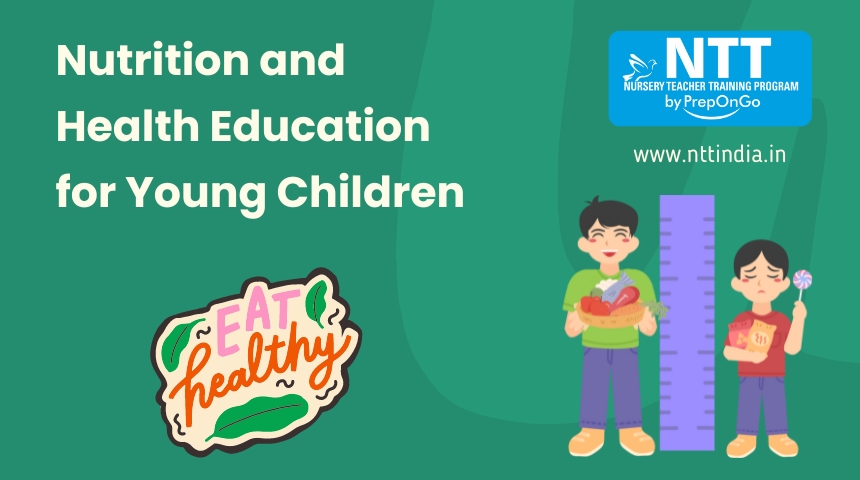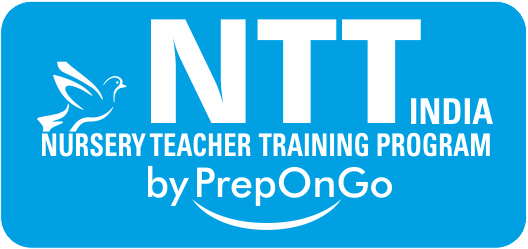Nutrition and Health Education for Young Children

In the formative years of childhood, nutrition and health play a crucial role in overall development. As educators in the Nursery Teacher Training (NTT) Program in India, it’s essential to understand the importance of nutrition and health education for young children. This guide will help you integrate these critical aspects into your teaching practices, ensuring that children develop healthy habits early on.
The Importance of Nutrition for Young Children
Good nutrition is the foundation of a child’s growth and development. Proper nutrition supports physical growth, cognitive development, and immune function. Here’s why nutrition is vital:
- Physical Growth: Adequate nutrition ensures that children grow at a healthy rate, with strong bones and muscles.
- Cognitive Development: Nutrients like omega-3 fatty acids, iron, and vitamins are essential for brain development and cognitive functions.
- Immune System: A balanced diet helps build a strong immune system, reducing the risk of illnesses and infections.
Key Nutrients for Young Children
Understanding the key nutrients that children need is crucial for promoting healthy eating habits. Here are some essential nutrients and their sources:
- Protein: Important for growth and repair. Sources include lean meats, dairy products, beans, and nuts.
- Calcium: Essential for bone development. Sources include milk, cheese, yogurt, and leafy green vegetables.
- Iron: Crucial for cognitive development. Sources include red meat, beans, spinach, and fortified cereals.
- Vitamins A, C, and D: Important for vision, immune function, and bone health. Sources include fruits, vegetables, dairy products, and sunlight.
Health Education in Nursery Schools
Health education goes hand-in-hand with nutrition education. Teaching children about healthy habits can set the stage for a lifetime of wellness. Here’s how nursery teachers can promote health education:
- Handwashing: Teach children the importance of washing hands before meals and after using the restroom to prevent the spread of germs.
- Physical Activity: Encourage regular physical activity through play, which helps in physical development and maintaining a healthy weight.
- Sleep Hygiene: Educate children and parents about the importance of adequate sleep for overall health and development.
Practical Tips for Nursery Teachers
- Incorporate Nutrition Education into the Curriculum:
- Use stories, songs, and activities to teach children about different food groups and the benefits of eating a balanced diet.
- Organize activities like “Fruit and Vegetable Day” where children bring and share different fruits and vegetables.
- Lead by Example:
- Model healthy eating habits by having balanced snacks and meals during school hours.
- Show enthusiasm for trying new and healthy foods.
- Engage Parents and Caregivers:
- Provide resources and information to parents about the importance of nutrition and health for their children.
- Encourage parents to pack nutritious snacks and lunches.
- Create a Healthy Eating Environment:
- Ensure that meal and snack times are pleasant, social, and relaxed.
- Avoid using food as a reward or punishment to promote a healthy relationship with food.
- Promote Physical Activity:
- Incorporate plenty of outdoor playtime and structured physical activities into the daily routine.
- Encourage activities that develop motor skills, such as running, jumping, and climbing.
Conclusion
As part of the NTT India Nursery Teacher Training Program, understanding and promoting nutrition and health education for young children is paramount. By integrating these practices into your teaching, you can help shape healthy, happy, and well-rounded individuals. Remember, the habits formed in early childhood often last a lifetime, making your role in promoting good nutrition and health all the more important.
